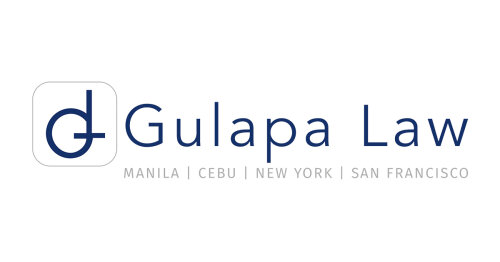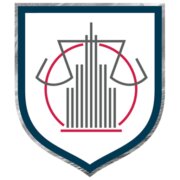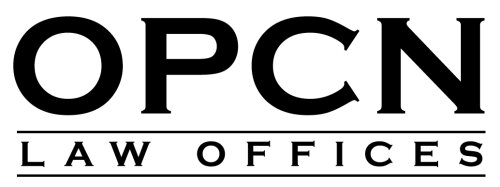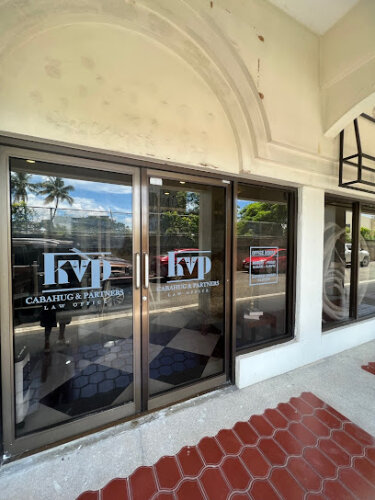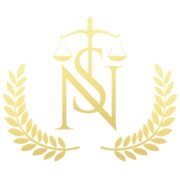Best Aviation Lawyers in Philippines
Share your needs with us, get contacted by law firms.
Free. Takes 2 min.
Or refine your search by selecting a city:
List of the best lawyers in Philippines
About Aviation Law in Philippines
Aviation in the Philippines is a dynamic sector that plays a crucial role in the country's connectivity and economic growth. Given its strategic geographic location, the Philippines serves as an aviation hub in Southeast Asia. The industry involves various activities, including commercial air transport, cargo operations, maintenance, repair and overhaul (MRO) services, and aircraft manufacturing. In the Philippines, aviation activities are regulated by several laws and governmental agencies to ensure safety, security, and efficiency in the air travel and transport sectors. The Civil Aviation Authority of the Philippines (CAAP) is the primary regulatory body overseeing aviation operations in the country.
Why You May Need a Lawyer
Engaging a lawyer with expertise in aviation law can be vital in several situations. Common scenarios might include:
- Disputes arising from air travel, such as passenger rights, delays, and cancellations.
- Airline liability for accidents or incidents involving personal injury or damage to property.
- Regulatory compliance for aviation businesses or airlines operating within or outside the Philippines.
- Legal issues related to aircraft leasing, purchasing, or financing agreements.
- Dealing with government enforcement actions or penalties.
- Matters concerning airport operations and airspace management.
Local Laws Overview
The Philippines has a robust legal framework governing aviation, key aspects include:
- The Civil Aviation Authority Act of 2008 (Republic Act No. 9497) establishes the CAAP and outlines its powers and functions.
- The Aviation Security Act of 2012 focuses on safeguarding civil aviation against acts of unlawful interference.
- The Air Passenger Bill of Rights ensures protection and services for air passengers.
- Various executive orders and resolutions dictate air transport agreements, bilateral air service agreements, and other aviation-related policies.
- Environmental laws relevant to aviation emissions and noise pollution are also critical.
Frequently Asked Questions
What is the role of the Civil Aviation Authority of the Philippines (CAAP)?
CAAP is responsible for implementing policies on civil aviation to ensure safety, security, and efficiency. It regulates air traffic, investigates aviation accidents, and grants airworthiness certification to aircraft operating in the Philippines.
What legal protections are available for air passengers?
The Air Passenger Bill of Rights provides several protections, such as the right to information, right to receive immediate compensation when flights are overbooked, delayed, or canceled, and the right to complete services paid for during air travel.
How does the Philippines address aviation safety and security?
Aviation safety and security are addressed through the implementation of international standards, particularly those set by the International Civil Aviation Organization (ICAO), and through national legislation such as the Aviation Security Act of 2012.
What should I do if my flight is canceled or delayed in the Philippines?
Airlines are required to inform passengers of flight changes in a timely manner. Passengers have the right to compensation, rebooking, or refunds depending on the situation, as outlined in the Air Passenger Bill of Rights.
How can I register an aircraft in the Philippines?
To register an aircraft, you must comply with CAAP requirements, which include proving ownership, ensuring airworthiness, and applying for a certificate of registration and a certificate of airworthiness.
What are the major challenges facing aviation in the Philippines?
Challenges include infrastructure limitations, air traffic congestion, regulatory compliance, and integrating international aviation standards with local policies.
How does the Philippine government regulate drone usage?
Drone operations are regulated under CAAP's Memorandum Circulars, requiring permits for commercial use and adherence to guidelines concerning altitude, operational areas, and safety measures.
Are there special considerations for foreign airlines operating in the Philippines?
Foreign airlines must comply with bilateral air service agreements and obtain necessary permits from CAAP to operate in the Philippines.
What are the environmental concerns related to aviation in the Philippines?
Key environmental concerns include aviation emissions, noise pollution, and compliance with national and international environmental standards and agreements.
How can I pursue a career in aviation law in the Philippines?
Pursuing a career in aviation law typically requires a law degree, passing the bar examination, and gaining specialized knowledge and experience in aviation legislation, regulations, and practices.
Additional Resources
Individuals seeking further information or assistance can consult the following resources:
- The Civil Aviation Authority of the Philippines (CAAP)
- Department of Transportation (DOTr) - Aviation Sector
- Air Carriers Association of the Philippines (ACAP)
- Philippine Airlines and Cebu Pacific customer service for airline-specific inquiries
- International Civil Aviation Organization (ICAO) publications and guidelines
Next Steps
If you require legal assistance in aviation, consider the following steps:
- Research reputable law firms or attorneys in the Philippines specializing in aviation law.
- Prepare all relevant documentation, such as contracts, agreements, and communication records, before consulting a lawyer.
- Schedule a consultation to discuss your legal needs and understand your options.
- Consider engaging a lawyer to represent your interests and help navigate any legal issues in the aviation sector effectively.
Lawzana helps you find the best lawyers and law firms in Philippines through a curated and pre-screened list of qualified legal professionals. Our platform offers rankings and detailed profiles of attorneys and law firms, allowing you to compare based on practice areas, including Aviation, experience, and client feedback.
Each profile includes a description of the firm's areas of practice, client reviews, team members and partners, year of establishment, spoken languages, office locations, contact information, social media presence, and any published articles or resources. Most firms on our platform speak English and are experienced in both local and international legal matters.
Get a quote from top-rated law firms in Philippines — quickly, securely, and without unnecessary hassle.
Disclaimer:
The information provided on this page is for general informational purposes only and does not constitute legal advice. While we strive to ensure the accuracy and relevance of the content, legal information may change over time, and interpretations of the law can vary. You should always consult with a qualified legal professional for advice specific to your situation.
We disclaim all liability for actions taken or not taken based on the content of this page. If you believe any information is incorrect or outdated, please contact us, and we will review and update it where appropriate.
Browse aviation law firms by city in Philippines
Refine your search by selecting a city.




